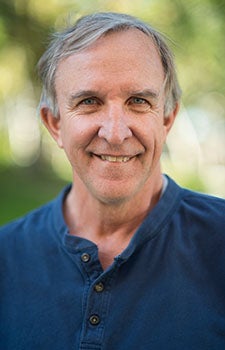
Learning to Listen to L.A.
When I came to Los Angeles in 1984, I was an assistant professor of English at USC Dornsife who loved studying great cities of the world such as ancient Athens, classical Rome, Shakespeare’s London and the Philadelphia of our Founding Fathers. I first saw L.A. in very negative comparison. For me, it was a city 500 miles wide but two inches deep — a city with no cultural depth, no historical memory and not much to remember.
But then came a change, and I can date it: April 29, 1992, when L.A. erupted in riots over the verdict in the trial of four policemen for the beating of Rodney King. I stayed up all night watching the news in tears. The city was the home of my three young daughters. I had to figure out why the City of Angels fell into its own revolution and civil war.

Thomas Gustafson, associate professor of English and American studies and ethnicity at USC Dornsife.
I began reading intensively the rich literature of Southern California, which taught me that to understand L.A. in 1992 (or 2018), we need to study its stories — its hopes, fears, dreams and tragedies — in the light of classical, American and world history. What makes the city so fascinating to study in this regard is that it is such an extensive confluence of people and their words. The city is what Alexandria and Athens and Rome were in the past: a sign of the times, an inheritance of the world’s symbolism, a gathering place and Fertile Crescent creator of its stories.
My ongoing study of our great city informs my two favorite courses, which I’ve taught for more than 20 years at USC Dornsife: “Los Angeles: the City, the Novel, the Movie” and “America, the Frontier and the New West.”
Los Angeles — so dominated in our imagination by the gaze of the camera — has grown into a preeminent center of literary creativity, the home of a new generation of writers who work to address significant concerns as we confront the problems of 21st-century urban America, including environmental crises, social inequality, materialism and racism. As midcentury writings of USC alumnus Carey McWilliams and late University Professor Kevin Starr teach us, the study of this work can help perform one of the vital roles of education in this urban region: It can teach us to listen more carefully to the rich mix of voices that compose the vox populi of L.A., and thus it can help create a deeper, broader sense of our common ground.
Read more stories from USC Dornsife Magazine’s Fall 2018/Winter 2019 issue >>